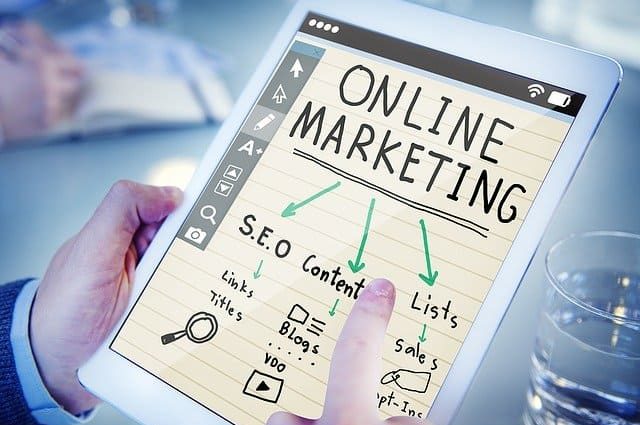
Proven Online Marketing Tactics for Small Businesses
In today’s digital age, small businesses face fierce competition and must harness the power of online marketing to stand out and attract customers. With limited budgets and resources, it’s crucial for small business owners to employ strategic and cost-effective online marketing tactics. Here, we discuss several proven strategies that can help small businesses boost their online presence, engage with more customers, and drive growth.
1. Search Engine Optimization (SEO)
SEO is a fundamental online marketing tactic that enhances your website’s visibility for relevant searches. The higher your pages rank on search engine results pages (SERPs), the more likely you are to garner attention and attract prospective and existing customers to your business.
Key Components of SEO:
- Keyword Research: Identify keywords that your target customers are searching for and incorporate them into your website content.
- On-page SEO: Optimize your website’s content and HTML source code to include keywords, meta descriptions, and title tags.
- Off-page SEO: Build quality backlinks from reputable sites to increase your site’s authority and ranking.
- Local SEO: Optimize your website for local search results by including local keywords, registering on Google My Business, and maintaining consistent contact details across all platforms.
For those looking to enhance their local SEO efforts, partnering with a Manchester SEO Agency can provide tailored expertise and support.
2. Content Marketing
Content marketing involves creating and sharing valuable, relevant, and consistent content to attract and retain a clearly defined audience — ultimately, to drive profitable customer action. It’s not just about selling your products or services, but about providing something valuable to your prospects that can help them solve their issues.
Effective Content Marketing Strategies:
- Blog Posts: Regularly update your blog with posts that answer key questions for your customers.
- Ebooks and Whitepapers: Develop in-depth content that can be downloaded in exchange for contact information.
- Infographics and Videos: Create visual content that is easy to share and can increase visitor engagement significantly.
3. Social Media Marketing
Social media platforms like Facebook, Instagram, Twitter, LinkedIn, and Pinterest can be powerful tools for small businesses to reach out to their audience. Through social media, you can engage in direct communication with your customers, gain insights into their preferences, and build a community around your brand.
Tips for Social Media Success:
- Consistency is Key: Keep a consistent posting schedule and maintain your brand’s voice across all channels.
- Engage with Your Audience: Respond to comments, messages, and posts. Engaging with users can create a loyal customer base.
- Leverage Paid Social Media Advertising: Small investments in social media advertising can significantly increase your visibility and reach.
4. Email Marketing
Email marketing remains one of the most cost-effective online marketing strategies. By sending emails to prospects and customers, you can directly communicate new offers, content, and initiatives.
Email Marketing Best Practices:
- Personalization: Use the recipient’s name and tailor the email content based on user behavior to make your emails feel more personal.
- Segmentation: Divide your audience into segments based on demographics or engagement levels to send more targeted and relevant emails.
- Mobile-Friendly Design: Ensure your emails are readable and attractive on mobile devices, where the majority of users read their email.
5. Pay-Per-Click (PPC) Advertising
PPC is an online advertising model in which advertisers pay each time a user clicks on one of their online ads. There are several types of PPC ads, but one of the most common types is the paid search ad. These ads appear when people search for things online using a search engine like Google – especially when they are performing commercial searches.
Benefits of PPC Advertising:
- Immediate Traffic: Unlike organic methods, PPC can bring immediate traffic by placing you at the top of search results.
- Budget Control: You can set an exact budget on how much you want to spend.
- Targeting: PPC allows very granular targeting including by geography, language, and device.
6. Affiliate Marketing
Affiliate marketing involves partnering with influencers and other businesses to promote your products or services. It’s a performance-based system that allows you to expand your reach through partners who earn a commission when they successfully refer new customers.
Steps to Start Affiliate Marketing:
- Choose the Right Affiliates: Partners who share your target audience and have a good reputation.
- Offer Attractive Commissions: Ensure your commission structures are competitive to attract more affiliates.
- Monitor and Optimize: Track the performance of your affiliates and optimize your approach for better results.
Conclusion
For small businesses, the online world offers vast opportunities to market themselves effectively. By utilizing SEO, content marketing, social media, email marketing, PPC, and affiliate marketing, small businesses can create a robust online presence that engages customers and drives sales. Each tactic has its strengths and can be adapted to meet the unique needs of your business. With consistent effort and strategic planning, small businesses can achieve significant growth and success in the digital arena.
Post a Comment
You must be logged in to post a comment.



